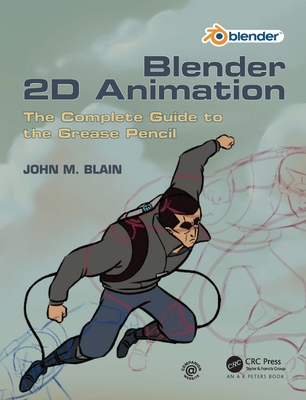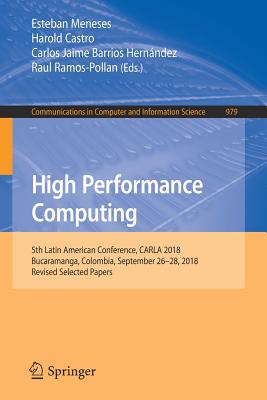Data Orchestration in Deep Learning Accelerators
暫譯: 深度學習加速器中的數據調度
Krishna, Tushar, Kwon, Hyoukjun, Parashar, Angshuman
- 出版商: Morgan & Claypool
- 出版日期: 2020-08-18
- 售價: $3,210
- 貴賓價: 9.5 折 $3,050
- 語言: 英文
- 頁數: 164
- 裝訂: Hardcover - also called cloth, retail trade, or trade
- ISBN: 1681738716
- ISBN-13: 9781681738710
-
相關分類:
DeepLearning
海外代購書籍(需單獨結帳)
買這商品的人也買了...
-
 $1,000Advanced Digital Logic Design Using Verilog, State Machines, and Synthesis for FPGA's (Hardcover)
$1,000Advanced Digital Logic Design Using Verilog, State Machines, and Synthesis for FPGA's (Hardcover) -
 Learning From Data (Hardcover)
Learning From Data (Hardcover)$1,200$1,140 -
 $4,731Architectures for Computer Vision: From Algorithm to Chip with Verilog (Hardcover)
$4,731Architectures for Computer Vision: From Algorithm to Chip with Verilog (Hardcover) -
 C++ 標準庫-學習教本與參考工具, 2/e (書側有些許黴斑,不介意再下單)
C++ 標準庫-學習教本與參考工具, 2/e (書側有些許黴斑,不介意再下單)$1,200$948 -
 Heterogeneous Computing with OpenCL 2.0, 3/e (Paperback)
Heterogeneous Computing with OpenCL 2.0, 3/e (Paperback)$2,880$2,736 -
 優化 C++|提高程式效能的有效技術 (Optimized C++: Proven Techniques for Heightened Performance)
優化 C++|提高程式效能的有效技術 (Optimized C++: Proven Techniques for Heightened Performance)$680$537 -
 Deep Learning for Computer Architects
Deep Learning for Computer Architects$2,730$2,594 -
 Unity 3D\2D 手機游戲開發:從學習到產品, 4/e
Unity 3D\2D 手機游戲開發:從學習到產品, 4/e$594$564 -
 Unity 遊戲設計育成攻略
Unity 遊戲設計育成攻略$560$476 -
 $267C++ 代碼整潔之道:C++17 可持續軟件開發模式實踐 (Clean C++: Sustainable Software Development Patterns and Best Practices with C++ 17)
$267C++ 代碼整潔之道:C++17 可持續軟件開發模式實踐 (Clean C++: Sustainable Software Development Patterns and Best Practices with C++ 17) -
 C++ Primer, 5/e (繁體中文版)
C++ Primer, 5/e (繁體中文版)$990$782 -
 C++ Templates 全覽, 2/e (C++ Templates: The Complete Guide, 2/e)
C++ Templates 全覽, 2/e (C++ Templates: The Complete Guide, 2/e)$1,200$948 -
 C++17 教學範本, 5/e (Beginning C++17, 5/e)
C++17 教學範本, 5/e (Beginning C++17, 5/e)$880$616 -
 基於 FPGA 與 RISC-V 的嵌入式系統設計
基於 FPGA 與 RISC-V 的嵌入式系統設計$708$673 -
 量子電腦程式設計 (Programming Quantum Computers: Essential Algorithms and Code Samples)
量子電腦程式設計 (Programming Quantum Computers: Essential Algorithms and Code Samples)$680$537 -
 深度探索 C++14 (Discovering Modern C++: An Intensive Course for Scientists, Engineers, and Programmers)
深度探索 C++14 (Discovering Modern C++: An Intensive Course for Scientists, Engineers, and Programmers)$768$730 -
 Python × Network 一拍即合:自動化、程式化和 DevOps 的一站式解決方案 (Mastering Python Networking, 3/e)
Python × Network 一拍即合:自動化、程式化和 DevOps 的一站式解決方案 (Mastering Python Networking, 3/e)$780$608 -
 GAN 對抗式生成網路 (GANs in Action: Deep learning with Generative Adversarial Networks)
GAN 對抗式生成網路 (GANs in Action: Deep learning with Generative Adversarial Networks)$750$593 -
 Python for DevOps|學習精準有效的自動化 (Python for Devops: Learn Ruthlessly Effective Automation)
Python for DevOps|學習精準有效的自動化 (Python for Devops: Learn Ruthlessly Effective Automation)$780$616 -
 Deep Learning Systems: Algorithms, Compilers, and Processors for Large-Scale Production
Deep Learning Systems: Algorithms, Compilers, and Processors for Large-Scale Production$3,210$3,050 -
 提升程式設計師的面試力|189道面試題目與解答, 6/e (修訂版) (Cracking the Coding Interview : 189 Programming Questions and Solutions, 6/e)
提升程式設計師的面試力|189道面試題目與解答, 6/e (修訂版) (Cracking the Coding Interview : 189 Programming Questions and Solutions, 6/e)$980$774 -
 Architecting High-Performance Embedded Systems: Design and build high-performance real-time digital systems based on FPGAs and custom circuits (Paperback)
Architecting High-Performance Embedded Systems: Design and build high-performance real-time digital systems based on FPGAs and custom circuits (Paperback)$1,780$1,691 -
 $1,935Software Architecture with C++: Design modern systems using effective architecture concepts, design patterns, and techniques with C++20 (Paperback)
$1,935Software Architecture with C++: Design modern systems using effective architecture concepts, design patterns, and techniques with C++20 (Paperback) -
 圖說演算法:使用 C++ (暢銷回饋版)
圖說演算法:使用 C++ (暢銷回饋版)$500$250 -
 $1,080Blender 2D Animation: The Complete Guide to the Grease Pencil
$1,080Blender 2D Animation: The Complete Guide to the Grease Pencil
相關主題
商品描述
This Synthesis Lecture focuses on techniques for efficient data orchestration within DNN accelerators. The End of Moore's Law, coupled with the increasing growth in deep learning and other AI applications has led to the emergence of custom Deep Neural Network (DNN) accelerators for energy-efficient inference on edge devices. Modern DNNs have millions of hyper parameters and involve billions of computations; this necessitates extensive data movement from memory to on-chip processing engines. It is well known that the cost of data movement today surpasses the cost of the actual computation; therefore, DNN accelerators require careful orchestration of data across on-chip compute, network, and memory elements to minimize the number of accesses to external DRAM. The book covers DNN dataflows, data reuse, buffer hierarchies, networks-on-chip, and automated design-space exploration. It concludes with data orchestration challenges with compressed and sparse DNNs and future trends. The target audience is students, engineers, and researchers interested in designing high-performance and low-energy accelerators for DNN inference.
商品描述(中文翻譯)
這篇綜合講座專注於在深度神經網路(DNN)加速器中進行高效數據協調的技術。摩爾定律的終結,加上深度學習和其他人工智慧應用的快速增長,促使了定制深度神經網路加速器的出現,以實現邊緣設備上的能源高效推理。現代的DNN擁有數百萬個超參數,並涉及數十億次計算;這需要大量的數據從內存移動到片上處理引擎。眾所周知,當前數據移動的成本已超過實際計算的成本;因此,DNN加速器需要仔細協調片上計算、網絡和內存元件之間的數據,以最小化對外部DRAM的訪問次數。本書涵蓋了DNN數據流、數據重用、緩衝層次結構、片上網絡以及自動化設計空間探索。最後,書中討論了壓縮和稀疏DNN的數據協調挑戰及未來趨勢。目標讀者為對設計高性能和低能耗的DNN推理加速器感興趣的學生、工程師和研究人員。


















![Ccent Icnd1 100-105 Official Cert Guide and Pearson Ucertify Network Simulator Academic Edition Bundle [With Access Code]-cover](https://cf-assets2.tenlong.com.tw/ig/013/064/752/9781587206757.jpg?1560075127)












